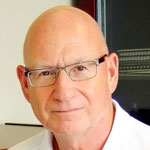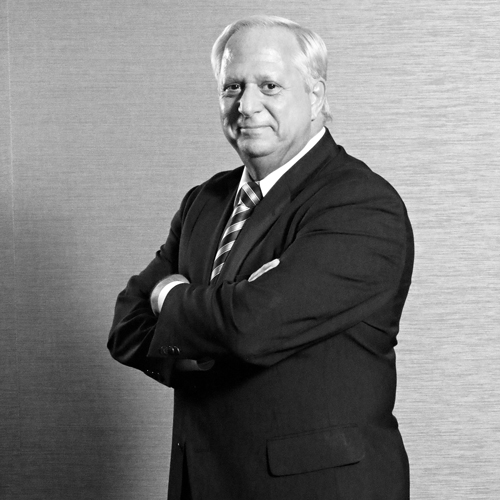What does it look like to hold benevolence, fiscal responsibility, and excellence in tandem? How can a health-care system simultaneously prioritize the needs of the poor and underserved, practice responsible stewardship, and better their surrounding community and patient care? What does a person with the passion, skill, and knowledge to advocate for each of these things look like?
She looks like Francine Halushka Katz, vice president and general counsel at St. Joseph’s Healthcare System. Holding a bachelor of science degree in public relations from the University of Florida and a juris doctor from Georgetown University Law Center, Katz brings many qualifications to her position at the in New Jersey-based St. Joseph’s. As a mother, she takes joy in demonstrating to her two boys what it means to help others. As a previous long-term hospital patient herself, she offers a unique and powerful perspective of meeting patient needs. All of these factors inform her work as she upholds the values of St. Joseph’s, while ensuring that patient safety and satisfaction remain the hospital’s number one priority.
“Our mission is to render quality health care with a special focus on the poor and underserved—but we take care of everyone,” says Katz. St. Joseph’s Healthcare System includes a hospital in Paterson, New Jersey; another in Wayne, New Jersey; a nursing home, a children’s hospital, a visiting health-care service, and more than forty satellite locations offering specialized programs and treatments for a variety of needs.
The pediatric feeding and swallowing program is a particularly respected program for children who are unable to feed themselves. Geriatric care is another, including an emergency room dedicated to the specific needs of older patients. But it’s not just about inpatient care at St. Joseph’s; it’s also about outpatient care, preventive care, and investing in the community. “We provide clinics, support groups, education, and injury prevention programs,” Katz says. “We see our time spent in school classrooms as an investment in our future because, for example, if children learn how to eat right at a young age, they won’t end up back at St. Joseph’s with obesity-related issues later in life.”
“We’ve been described as a gem of a health-care organization because we’re so unique,” adds Katz. “We work by our value-based standards of dignity, justice, excellence, and stewardship, which creates an environment of healing and compassion and excellence for all of our patients.”
From the very young to the not-so-young, the very poor in Paterson to the more affluent in Wayne, and with strong multicultural representation (approximately sixty different languages are spoken at the Paterson campus at any given time), “It’s phenomenal that . . . we’re able to touch such a wide range of patients.” Katz says.
St. Joseph’s is the largest provider of charity care and the second-largest provider of Medicaid in New Jersey. In 2013, the health system delivered an estimated $67.5 million in unpaid services to the community, two-thirds of which were clinical services to Medicaid or charity-care patients. Many members of the Paterson patient population have such limited access to health care that by the time they get to the hospital, they are much more sick than patients in more affluent and higher educated communities. “Health care is so specific—it’s such a local-oriented service based on community needs and individual patient wellness,” says Katz, who notes that despite these specific needs in such a diverse patient population, under the Affordable Care Act, St. Joseph’s is held to the same “cookie-cutter” regulations as all health-care providers across the country. “Even though the ACA tries to create an even playing field, it’s just not,” Katz says.
Still, the Affordable Care Act has affected St. Joseph’s in some positive and interesting ways. “From a financial perspective, we’re faring in a positive manner because many of our patients who were uninsured now have insurance,” Katz says.
Also, because regulations in New Jersey have expanded, many charity-care patients have now become Medicaid patients, bringing in higher reimbursement for St. Joseph’s. “What’s interesting is that our bad debt numbers have risen because many newly insured patients have very high deductibles,” Katz says. “So even though we are writing off more dollars than we have in the past, because there is more insurance for more patients, our net to net has actually improved.” Another contingency for reimbursement under the ACA is patient satisfaction. “Patient satisfaction is always important, but has recently become even moreso under the ACA because of value-based purchasing—the lower the satisfaction rate, the lower the reimbursement,” Katz says. Previously, St. Joseph’s tracked patient satisfaction with written surveys in the mail, but had a very low response rate. “We surmised that patients thought the surveys were bills and threw them out,” Katz says. “So now we make calls in Spanish and English, and [we] are able to collect comments in a way that is much more reflective of actual patient satisfaction.”
The benefits of the ACA for St. Joseph’s are also dependent on consistency of government policy. “We still very much rely on government reimbursement, so if they decrease the level of reimbursement, St. Joseph’s will suffer,” Katz says. “Under the ACA, we have financially improved a little bit, but we’re at the mercy of the government. We don’t know what the future holds.”
But unknowns about the days ahead do not dampen Katz’s enthusiasm for her work. “I feel so fortunate, because I get to go to work every day and make a difference,” she says. “I walk the halls and interact with real people going through tough times, and it inspires me to do the best that I can, because at the end of the day, my role is about making things better for our patients. I have the kind of career that reminds me that life is bigger than just me, and that I have a purpose.”
Katz describes herself as a hospital administrator who happens to be a general counsel. “I always try to think of what’s best for the patient first, and I work closely with my colleagues to make that happen,” she says. “I don’t want to be a roadblock to the running of a hospital—I want to collaborate and work together for the sake of our patients.”
And there is so much to collaborate on at St. Joseph’s right now and in the coming months. The organization is working to retain the doctors it trains through its affiliation with New York Medical College in New Jersey, it has started the development of a palliative care program, and it has an active ethics committee. St. Joseph’s is also highly prioritizing end-of-life care as it promotes dying with dignity, and offers education about advanced directives and what a gift they are for a patient’s loved ones.
St. Joseph’s also continues to work to develop the community around Paterson, including partnering with other local organizations to construct a new hotel on the campus of the hospital. “We’re St. Joseph’s Healthcare System, and we are very proud,” Katz says. “We are here providing personal and compassionate care that is true to our mission, which creates an environment of healing and compassion and excellence for all of our patients. This is St. Joseph’s.”

